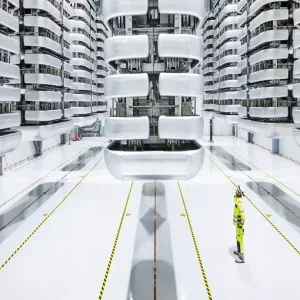An agreement was signed on 31 May between the IAEA and the Regional Education and Training Network in Nuclear Technology (STAR-NET) – a network of 13 universities from six countries in Eastern Europe and Central Asia – establishing the framework for cooperation in nuclear education and training, research and outreach in nuclear technology. The agreement, signed during the VIII International Forum ATOMEXPO 2016 in Moscow will also facilitate more interaction in education and learning programmes to strengthen the synergy among international activities and national academic programmes and to promote knowledge-sharing within the nuclear sector.
"Nuclear power is set to play an important role in tackling the growing energy demand, sustainable development, and climate change mitigation," said Mikhail Chudakov, IAEA Deputy Director General and Head of the Department of Nuclear Energy. "Nuclear education remains key to ensuring this and I am confident that STAR-NET will greatly contribute to it."
STAR-NET President Mikhail Strikhanov, rector of Russian National Research Nuclear University MEPhI, underlined that the new regional network would complement existing international initiatives, including those of the IAEA.
STAR-NET, established in 2015, brings together 13 leading universities from Armenia, Azerbaijan, Belarus, Kazakhstan, the Russian Federation and Ukraine. The network’s objective is to promote, manage and preserve nuclear knowledge and to ensure the continued availability of talented and qualified human resources in the nuclear field in its member countries. It also aims to enhance the competencies and availability of the human resources for safe and sustainable use of nuclear technology.






